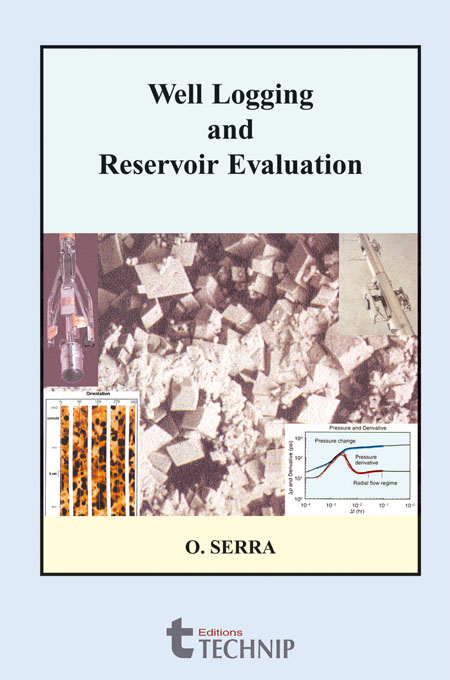Well Logging. Vol. 3 Well Logging and Reservoir Evaluation
Auteurs : SERRA Oberto
ISBN : 9782710808817
broché 220 x 297 mm
Date de publication : Septembre 2007
Acheteurs américains

 Ajouter au panier 130 €
Ajouter au panier 130 €
This third book on Well Logging, focuses on reservoir evaluation of the main goal is the determination of the hydrocarbon volume existing in the drilled well and the discovered field. This evaluation requires the determination of several factors: the reservoir volume; the reservoir tectonic and stratigraphic settings (spatial & temporal position; the presence of fractures; the reservoir mineralogical composition; the hydrocarbon volume in place and extractible, which depends on the saturation of hydrocarbon in each unit composing the reservoir, which, in turn, depends on: the total pore volume of each unit composing the reservoir, the pore size, which is a function of the texture (grain size, sorting, packing...), the diagenetic effects affecting the initial porosity ((compaction, cementation, transformation, dolomitization, dissolution…) undergone since the deposition of the sediment; the hydrocarbon type; the permeability which depends on sedimentary features, fractures, dissolution and fluid type; the production potential that is a function of the permeability and the reservoir pressure.
The determination of these factors will be considerably improved using a complete logging set including images of the borehole wall and nuclear magnetic resonance data and their interpretation by a team including geologist, geophysicist, petrophysicist and reservoir engineer in order to determine the depositional environment which can be precisely determined from well logging data, possibly calibrated on core data, taking into account: the facies of each depositional unit (composition, texture, internal structure, thickness); the type of facies succession composing genetic increment and genetic sequence.
This determination, completed by the detection of the faults crossed by the well, will allow a more precise interpretation of seismic data and consequently a better modeling of the reservoir for its economical evaluation and development.
Table des matières :
1. Generalities. 2. Interpretation methodology. 3. Reservoir detection. 4. Reservoir general parameters. 5. Reservoir properties of each bed. 6. Interpretation programs. 7. Reservoir types.
3 Appendices : Units, Symbols and Index-Glossary.

 Partager
Partager
 Tweeter
Tweeter
